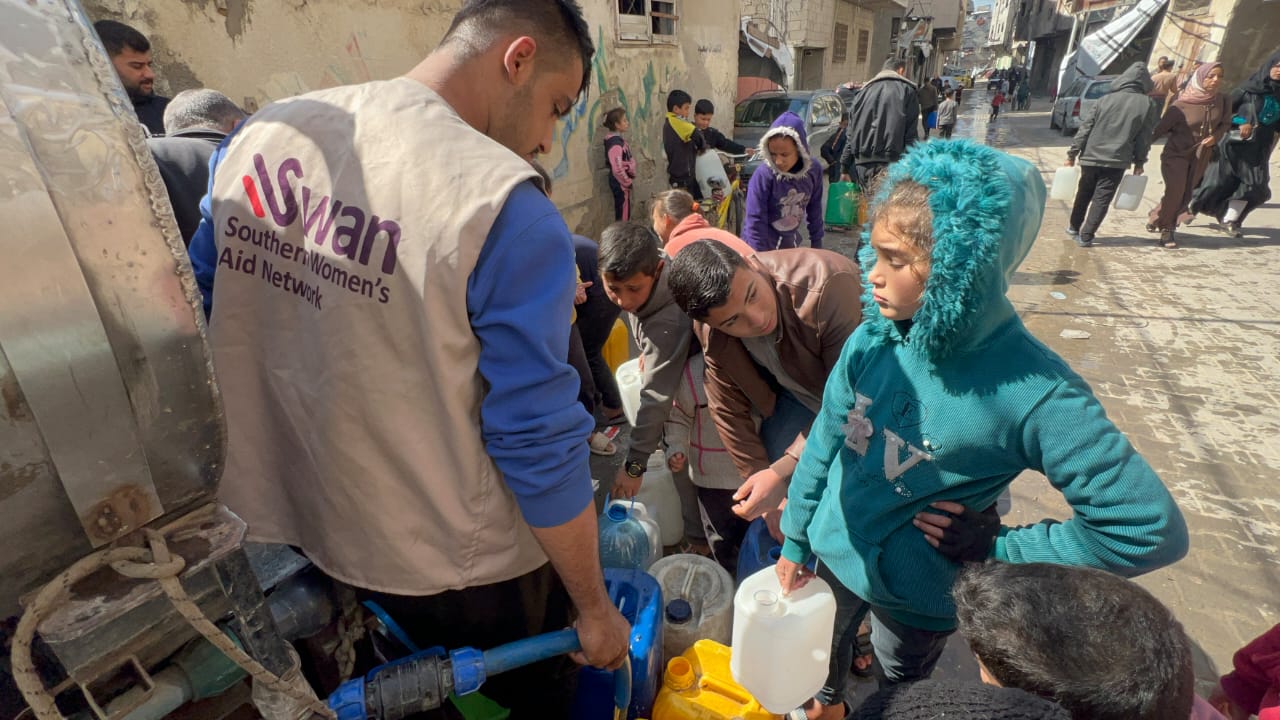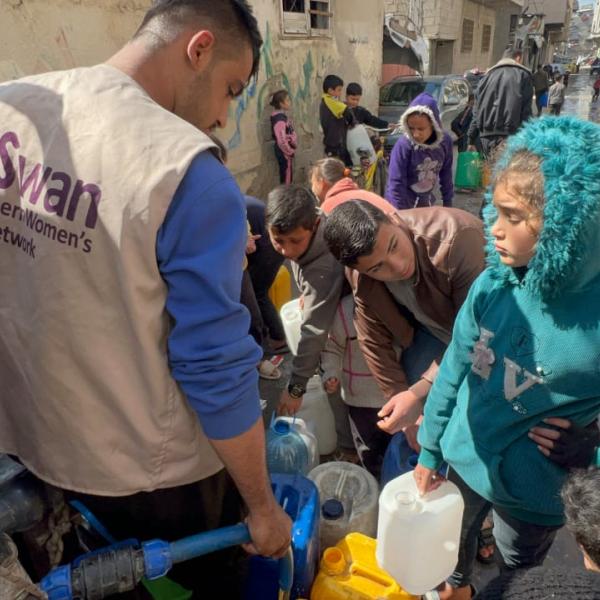

Sophia Malik
Sustainable Fish Farm and Water for Refugees in Cameroon
Sustainable Fish Farm and Water for Refugees in Cameroon
Fundraising Story
This fantastic empowerment project will provide 12000 refugees who are dependent on the UN for food with a sustainable income source. The cost to potentially change one person’s life forever is £1.14.
SWAN is working with UDES UK to support a vital aquaculture project for 12000 Central African Republic refugees living in Lolo Camp, Cameroon. These families have been displaced by conflict and have relied on UN food aid for over ten years. With severe cuts to aid budgets, malnutrition is rising and alternative solutions are urgently needed.
Background
The Fulani Muslim community of the Central African Republic (CAR) was displaced in a genocide by the “Anti-Balaka” militias during the civil war from 2013-2020. Instability in CAR persists meaning that 350,000 Fulani refugees remain stuck in camps in Cameroon, without any prospect to return home. Their livelihoods in the CAR have been destroyed. The Lolo Camp in the East Region, Cameroon, hosts 12,000 CAR refugees, who have depended on UN food aid for over a decade. However, budgets available for UN food assistance have been drastically cut.
“Without immediate support we will have no option but to further cut the already meagre portions on refugees’ plates, with all the devastating impacts this will bring including rising malnutrition and hunger, exposure to protection risks and families resorting to desperate strategies to cope, including pulling children out of school and eating less food – affecting especially women and children,” (WFP, 2024)
The Lolo Farm Project
The Lolo Farm Project was established by UDES UK with the objective of helping the refugee community to provide for their own needs. While the refugees cannot legally own or rent land in Cameroon, UDES, which is a registered legal entity in Cameroon, purchased the land and facilitates the community operation of the farm. Farm produce supplements UN rations for the most vulnerable camp community members. UDES UK’s aims with this project is to build the capacity of the community to implement their own livelihoods, improve food security and enhance nutrition.
The Lolo Farm, operated with community involvement, has a flowing stream and land suitable for aquaculture. UDES UK has developed a project to produce 10 tonnes of catfish twice a year using 20 ponds. The fish will be sold in Kenzou Town, where merchants supply markets in the Central African Republic. A portion of the produce will be distributed to the most vulnerable camp residents to increase their protein intake.
The project will therefore have multiple benefits:
1) Providing community livelihoods to the refugees
2) A portion of the produce will be used to provide high protein fish to vulnerable members of the camp community
3) The net revenue from sales will also be used to fund subsequent projects for the CAR refugees in Cameroon via a revolving fund.
4) Community Water Point
The aquaculture project includes 2 main parts:
1) The hatchery system which produces fry and grows them to fingerling size ready for stocking into ponds
2) The grow out system, where fingerlings are stocked into ponds and grown to harvest size.
In 2024 UDES secured funding for the development of the two system components and in December 2024 began implementing the project. The missing element is the power and water infrastructure to make the hatchery operational. A solar-powered water pumping system will activate the hatchery and provide clean water access to the camp. This one-time investment will allow fish production to begin and create long-term benefits for the refugee community.
The total cost is £13700.
The hatchery system is located in the Lolo Camp, but since it requires a power supply and close supervision. UDES has already set up the hatchery system. However, after implementation of phase 1 of the project was completed, by Omega Ventures, a local aquaculture consulting firm, it was ascertained that there is insufficient water supply in the camp during the dry season to operate the hatchery system effectively. Therefore, UDES secured additional funding and established a deep well right next to the location of the hatchery. But,subsequent to this, the generator that was providing power in the Lolo Camp has ceased operation due to lack of fuel which have been caused by cuts in the UNHRC’s budget. Hence there is now insufficient power available in the camp to pump water from the deep well as well as to operate the hatchery system (which has its own pumps and other electrical components).
Proposed InterventionHere in we propose to build on previous funding already secured by UDES UK and investment already made to bring the Lolo aquaculture project to a successful conclusion, by establishing solar power and water supply infrastructure in the UDES UK community centre in Lolo Camp. This will provide sufficient water year-round from the existing borehole to supply the catfish hatchery and also support the camp community’s potable water and sanitation needs. Furthermore, the solar system will supply reliable 24/7 power to operate the catfish hatchery for ongoing fry and fingerling production.
System Components
1) Solar Power and Water-Pumping Systema. A photovoltaic systems with sufficient capacity to power the water pump to supply 10,000L of water daily (filling the tank twice), from a depth of 70m to a height of 4m above ground level, as well as provide additional power to operate the fish hatchery equipment 24/7 (which has an operational power load of 600W: air pump, water circulation pump and temperature regulator).
b. The submersible water pump itself, and all required plumbing and accessories to deliver water to the tank, including the necessary pipes, cables and valves for automated filling and water level regulation to prevent over-flow.
2) Water Tank, Water Tower, Distribution Pipes and AccessoriesThe water tower will be engineered to hold the 5000L tank at a height of 4m, to gravity feed to downstream use-points. Use-points will include community water point, fish hatchery, holding tanks for brood-stock (adult fish used for spawning) and fish harvested from the main grow-out ponds prior to processing (the holding tanks and hatchery themselves are not part of this proposal).
a. The water tank (5000L)b. The water tower (4m)c. Plumbing and accessoriesFencingFor adequate security the area around the solar system, hatchery and holding tanks will be fenced with a 2m high concrete wall and iron gate.
Community Water Point
The community water point will be constructed for convenient access and use by the camp community. It will include a general use water point where community members can fill up containers for domestic water use, and an ablution section, which is a key use for the water, especially since the area is adjacent to the UDES-UK community centre mosque.
Giving Levels
Empower CAR Refugees in Cameroon
Build the catfish farm to change lives
Provide jobs, water and nutrition
Empower refugees in Cameroon
Latest donations
Anonymous Donor
5 months ago
£10
Anonymous Donor
7 months ago
£50
Anonymous Donor
7 months ago
£50
